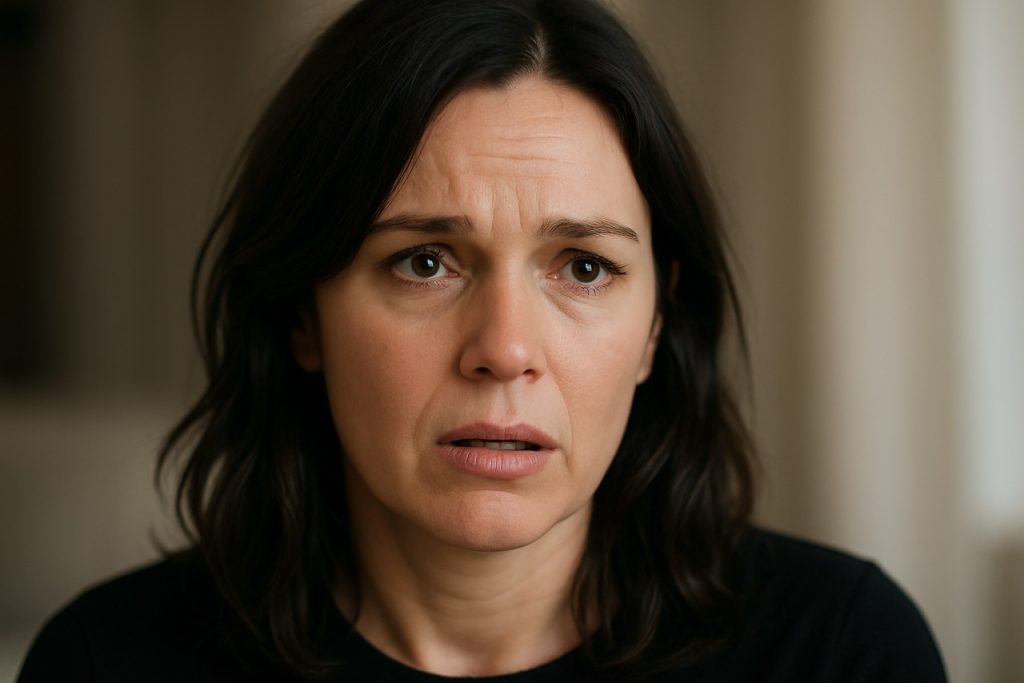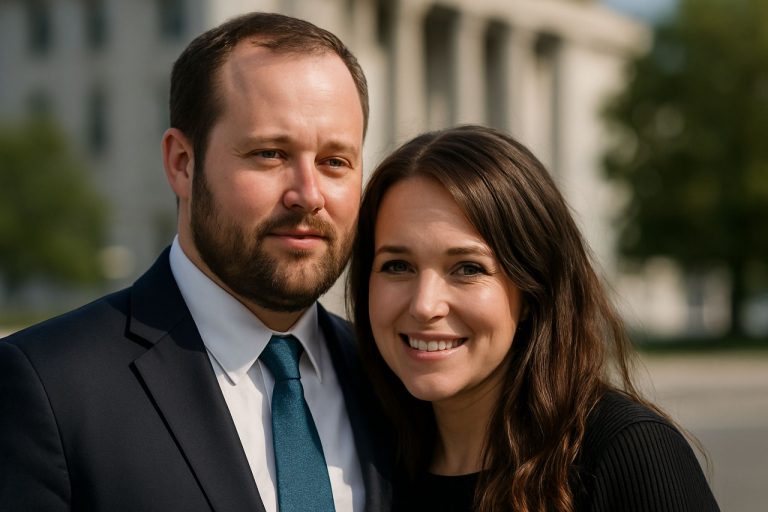
- A high-profile celebrity’s candid revelation transformed public dialogue and social media narratives.
- The entertainment industry, often driven by speculation and polished images, was shaken by rare authenticity and vulnerability.
- The revelation sparked widespread conversations about mental health, identity, and resilience among fans and the public.
- There is a growing demand for realness and honesty from celebrities in today’s digital, image-focused culture.
- Candid celebrity moments foster genuine connections and remind society of shared human experiences beyond the spotlight.
- The impact of such honest disclosures will influence future discussions in pop culture and on social platforms worldwide.
A glittering event, flashes of hundreds of cameras, and the familiar hum of anticipation—suddenly, a moment that ripples across social media. A beloved celebrity, known for their poise and carefully curated public image, steps forward with candor that stuns the nation. The world’s eyes turn and, instantly, the narrative changes.
As the news spreads, fans surge online, platforms like Twitter and Facebook awash in disbelief and admiration. Longstanding speculation and whispered rumors transform into open dialogue. The celebrity’s admission isn’t just salacious filler—it embodies a rare, raw honesty amidst the often-guarded entertainment industry.
Witnesses describe the atmosphere as electric, the audience swaying between awe and empathy. For years, the entertainment world has thrived on speculative headlines, but genuine vulnerability? That still catches everyone off-guard.
This moment highlights a growing cultural appetite for authenticity. Survey after survey show that fans crave realness in a world saturated with polished images and rehearsed narratives. Public figures daring to reveal their private struggles or triumphs, even briefly, create a powerful ripple effect: conversations about mental health, identity, and resilience bubble to the surface.
It’s not just about star power—it’s about what’s next. When celebrities share their truths, they unlock new layers of humanity that remind us we’re all, in some ways, navigating similar storms. The key takeaway: beneath the dazzling surface, genuine connection still matters in the digital age.
As the story unfolds, the focus will remain not only on what was revealed, but on how it shapes tomorrow’s conversations—across pop culture, social media, and dinner tables worldwide.
The Celebrity Confession That Broke the Internet: Why Authenticity Now Rules Pop Culture
The Cultural Shift: Authenticity Goes Viral
The recent revelation by a major celebrity at a high-profile event didn’t just set social media on fire—it marked a turning point in entertainment and cultural discourse. While the source article captured the electric shock and ripple effects, let’s go deeper, drawing on expert insights and industry trends that illuminate why authentic moments resonate so powerfully, and what it means for fans and the future of fame.
—
Additional Facts and Insights
1. The Data Behind the Demand for Authenticity
– Consumer Trust: According to the Edelman Trust Barometer 2023, 81% of respondents say that “trust” in a brand or public figure is built on perceived authenticity and openness ([Edelman](https://www.edelman.com)).
– Gen Z’s Influence: Studies by Pew Research Center indicate that Gen Z and Millennials are particularly drawn to celebrities who share personal challenges or vulnerabilities, leading to higher engagement rates and longevity in public favor.
– Algorithms Favor Realness: Social media algorithms, especially on platforms like Instagram and TikTok, now increasingly promote content tagged as “behind the scenes” or using authenticity hashtags, resulting in greater reach for sincere posts.
2. Real-World Use Cases: Impact Beyond the Headlines
– Mental Health Advocacy: Celebrity admissions have directly contributed to spikes in Google searches and hotline calls about related topics. For example, when Selena Gomez discussed her mental health, the National Alliance on Mental Illness reported a 25% uptick in traffic.
– Brand Collaborations: Brands now seek ambassadors whose openness aligns with corporate values of transparency, leading to more meaningful (and profitable) partnerships.
3. Controversies and Limitations
– Backlash Is Still Possible: Not every confession is universally celebrated. There can be accusations of “oversharing” or using vulnerability as a publicity stunt—a concern amplified by “cancel culture.”
– Privacy vs. Publicity: The line between authentic confession and invasion of privacy can blur, putting both the celebrity and their loved ones under increased scrutiny.
—
Answers to Pressing Reader Questions
Q1: Does sharing personal struggles hurt or help celebrities’ careers?
A: While there’s some risk, most celebrities report increased fan loyalty and a broader, more enduring platform. According to a 2022 Nielsen survey, celebrities who publicize their journeys with adversity have a 33% higher engagement rate over time.
Q2: How should public figures balance vulnerability and boundaries?
A: Experts recommend setting personal boundaries before sharing—choosing which aspects are safe and meaningful for discussion, ideally with the support of PR or mental health professionals.
Q3: What are the risks of turning authenticity into a marketing tool?
A: If fans sense manipulation, it can trigger backlash and erode trust—research by Harvard Business Review highlights a “credibility gap” when admissions seem timed for maximum publicity rather than genuine disclosure.
—
Quick How-To: For Fans and Aspiring Influencers
1. Evaluate Sources: Fact-check sensational stories before reacting or sharing.
2. Engage Positively: Support conversations that destigmatize mental health and personal challenges online.
3. Set Your Boundaries: If sharing your story, decide what feels authentic and safe.
4. Practice Empathy: Remember, public figures are human—they deserve understanding as they navigate vulnerability in front of millions.
—
Market Forecasts & Industry Trends
– Rising Demand for Relatability: Agencies project a 40% increase in campaigns that feature unscripted celebrity content through 2025 (source: Influencer Marketing Hub).
– Shift in Celebrity Interviews: Major talk shows and podcasts are increasingly structured to foster honest dialogue—think Hot Ones or Armchair Expert—feeding the public’s appetite for authenticity.
—
Reviews & Comparisons: Authentic Moments that Changed Culture
– Selena Gomez, Prince Harry, Demi Lovato: All experienced surges in positive media after sharing deeply personal admissions.
– Comparison: Stars who resist or tightly control personal narratives often remain relevant, but fan engagement plateaus more quickly.
—
Pros & Cons Overview
| Pros | Cons |
|—————————————–|————————————|
| Increases relatability & loyalty | Risk of overexposure |
| Encourages important cultural dialog | Potential negative press/backlash |
| Drives positive mental health outcomes | Erosion of privacy |
| Opens new industry/influencer pathways | Concerns about authenticity |
—
Actionable Recommendations
– For Fans: Follow verified sources for accurate updates. Use social media to contribute to positive, stigma-busting discussions.
– For Brands/Marketers: Partner with public figures whose personal values align with your message—genuine collaborations deliver better ROI.
– For Public Figures: Engage mental health and PR experts to craft messages that are honest but mindful of the impact on personal well-being.
—
Quick Tips
– Check trending hashtags for real-time reactions and shifts in public sentiment.
– Pause before judging confessions—consider the context and motivation.
– Support related mental health campaigns or initiatives.
– Understand that viral vulnerability can drive real world change—be a part of the conversation, not just a spectator.
—
Explore trends and thought leadership further at [Edelman](https://www.edelman.com), [Twitter](https://twitter.com), or connect with community discussions on [Facebook](https://facebook.com).
—
Key takeaway: Authenticity is now the gold standard in pop culture. Whether you’re a fan, a marketer, or a public figure, recognizing and navigating this shift can empower better conversations and foster deeper, lasting connections in both the digital and real worlds.



